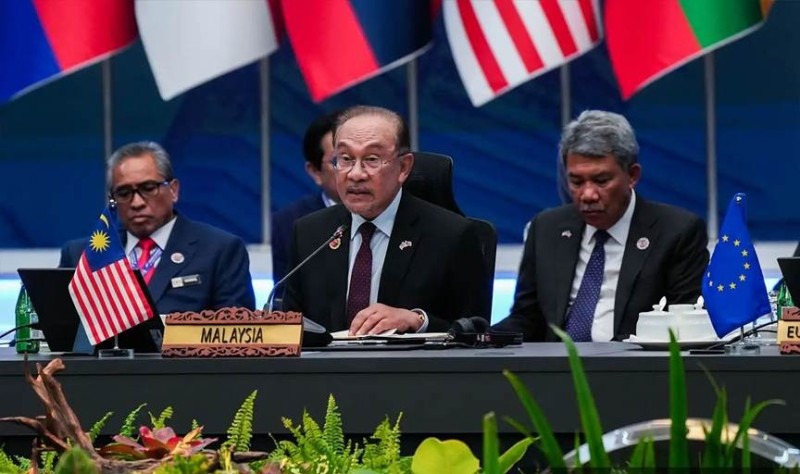
GYEONGJU: Malaysia has the chance to use the Apec Economic Leaders’ Meeting here to highlight progress under the Regional Comprehensive Economic Partnership (RCEP) achieved during its Asean chairmanship, a trade analyst said.
Denis Hew, senior fellow at the Lee Kuan Yew School of Public Policy, said the RCEP, which is an Asean-led initiative, can serve as a pathway to Apec’s long-term goal of a Free Trade Area of the Asia-Pacific (FTAAP).
“RCEP also shows how deeper trade integration among its members can serve as a ‘buffer’ against external shocks such as the impact of aggressive reciprocal tariffs (from the US) and ongoing supply chain disruptions,” he told FMT.
“Malaysia can highlight the progress made in RCEP implementation at Apec, and perhaps revive discussions on FTAAP,” he added.
Malaysia recently wrapped up its term as Asean chair at the bloc’s 47th summit, where Southeast Asian leaders met with their partners under the RCEP framework.
Negotiations for RCEP began in 2012, with the objective to consolidate Asean’s existing free-trade agreements with dialogue partners into a unified framework for regional trade and investment.
It gained greater salience after the US withdrew from the Trans-Pacific Partnership in 2017. Several economies, including Bangladesh, Chile, Hong Kong, and Sri Lanka, have recently expressed interest in joining RCEP.
South Korea, a member of RCEP, is hosting this year’s Apec summit with the theme “Building a Sustainable Tomorrow”, focusing on connectivity, innovation, and shared prosperity across the Asia-Pacific region.
Jayant Menon, senior fellow at the ISEAS–Yusof Ishak Institute, noted Malaysia’s successful Asean chairmanship and the US tariff concessions it secured, but cautioned against complacency.
“The writing is on the wall – the US is no longer a reliable trading partner,” he said.
Menon said Malaysia should use its participation in Apec, RCEP and other groupings to diversify its trade and investment patterns, reducing what he described as a “high dependency on the US”.
“Regional groupings like Apec and RCEP can help in that journey,” he said.
Hew also said that Malaysia’s priorities during its Asean chairmanship, including deeper integration, digital transformation, enhanced connectivity, and sustainability, are “very much aligned” with Apec’s agenda this year.
“This presents an opportunity for Malaysia to showcase what was discussed and agreed upon under its Asean leadership, while using the Apec platform to sustain that momentum and translate those priorities into concrete progress,” he added.
According to Hew, both Asean and Apec share a commitment to “open regionalism”, meaning trade and investment liberalisation that complements the global multilateral system rather than replacing it.
“Ensuring policy continuity between the two groupings will help reinforce shared objectives such as trade facilitation and regional connectivity,” he said.
Prime Minister Anwar Ibrahim is scheduled to attend two key sessions of the summit, meet regional industry players and the US Apec Business Coalition, before returning to Kuala Lumpur on Nov 1.
Source: https://www.freemalaysiatoday.com/category/nation/2025/10/31/malaysia-can-showcase-rcep-progress-on-apec-stage-say-trade-analyst

